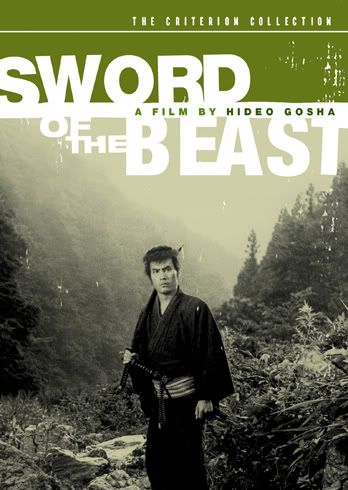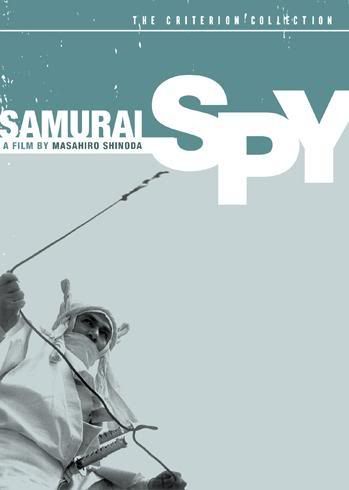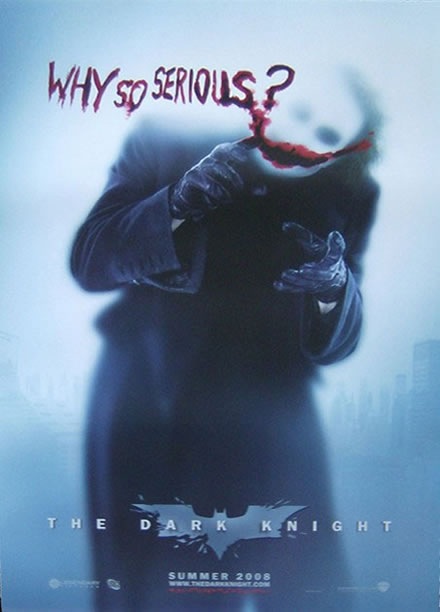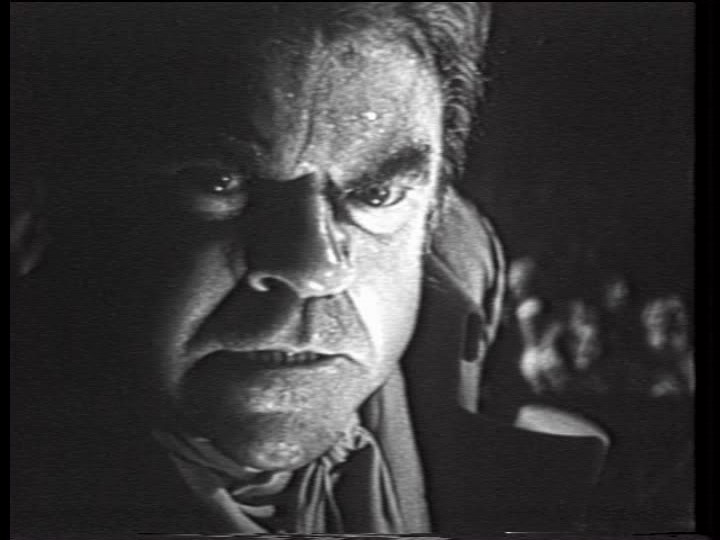

Sometimes I think I like the idea of a Sam Fuller movie more than his actual movies. My problem, I guess, comes from trying to analyze them like literature -- some of his dialogue is overwrought and his storytelling ham-fisted (for example, the "love" story in
Park Row is pretty ridiculous). I did love the visual style of the film, though, with its eye-catching deep focus compositions, lighting, and (especially) peripatetic camera -- the standout example of this is the scene in which Mitch gets into three or four fistfights in the street before marching into The Star.
As it turns out, I guess I had a similar reaction to Fuller as
Andrew Sarris, who wrote in 1968:
Fuller is an authentic American primitive whose works have to be seen to be understood. Seen, not heard or synopsized...Fuller's ideas are undoubtedly too broad and over-simplified for any serious analysis, but it is the artistic force with which his ideas are expressed that makes his career so fascinating to critics who can rise above their political prejudices...It is time the cinema followed the other arts in honoring its primitives. Fuller belongs to thecinema, and not to literature and sociology.
But what the hell, I'll try to talk about Fuller's ideas a little anyway. As most people familiar with Fuller know, he became a newspaper crime reporter at 17, and
Park Row is his paean to the ink-stained wretches he knew and loved. He fashions the story as a classic underdog tale, with the feisty, upstart Globe led by Phineas Mitchell trying to avoid the flyswatter of the Wal-Mart of newspapers, The Star, whose bitch-goddess editor fired Mitchell for not toeing the company line, which includes telling outright lies to sell papers. Throughout the film Mitch is extolled as a "true newspaperman," a goal so noble to aim for that when 75-year-old reporter Mr. Davenport feels that Mitch has attained it, Davenport can die peacefully knowing he's lived to see the the fire of true journalism burn on.
What wasn't clear to me for awhile was why Mitch was considered such a great newspaperman -- his first story, after all, came from him turning in Brodie, the Brooklyn Bridge jumper, just so he could publicize the arrest, then get even more attention later when The Globe freed him. I guess what it comes down to is Fuller wants journalism to follow the "first, do no harm" dictum of medicine. It's OK to have an agenda and manipulate the truth, but not to tell outright lies like the ones that apparently led to the execution of an innocent man, the incident that spurred Mitch to rebel against The Star.
The movie is more about The Globe's fight for survival against an immoral and corrupt enemy that's trying to drive it out of business than it is about the fight for social justice -- this ain't
All the President's Men. The climax of the movie comes when The Globe fights impossible odds (including pipe bombs) to get out an edition that exposes the truth about its hateful neighbor down the street, The Star, not a story exposing police or political corruption. Even
His Girl Friday paid lip service to the importance of that function of journalism in its climax.
These aren't really meant as criticisms -- and, to be fair, Davenport does question Mitch a couple of times about his intentions, showing that at least someone was thinking about this issue. I just kind of wish that Fuller either
a) held Mitch's feet to the fire a bit more (think about what happens to Charles Foster Kane after his idealistic beginnings), or
b) dropped some of the pretensions of aspiring to the highest ideal -- some of Davenport's eloquent obituary, for example, elevate Mitch to a status I don't think he attained. Then again, he's way more of a newspaperman than anyone at the all-powerful Star, so maybe that was Fuller's point. Mitch is a stubborn underdog, fighter and survivor -- just like Fuller.
And dammit, it was still a fun movie to watch and (most of the time) listen to. And I did like some of the not-so-subtle metaphors that Fuller lent a certain gusto, like Mitch putting what he thinks is the last edition of The Globe on the "obituaries" peg, or ending the movie not with "The End" but with "Thirty." Even if it should have been written like this:
--30--
 I've been looking forward to catching up with this set ever since I saw Sword of Doom at the Oak Street Cinema in Minneapolis a few years ago. A hundred or so death-by-sword-slashes/impalings later, as we walked out of the theater, my friend Mike said, "Well, that certainly was a sword of doom." That film isn't in this set, but another one with that film's director and star, the superfluously punctuated Kill!, is. Though I loved every movie in the set, I've probably either forgotten some key details about each one or I'll end up commingling them.
I've been looking forward to catching up with this set ever since I saw Sword of Doom at the Oak Street Cinema in Minneapolis a few years ago. A hundred or so death-by-sword-slashes/impalings later, as we walked out of the theater, my friend Mike said, "Well, that certainly was a sword of doom." That film isn't in this set, but another one with that film's director and star, the superfluously punctuated Kill!, is. Though I loved every movie in the set, I've probably either forgotten some key details about each one or I'll end up commingling them.






















